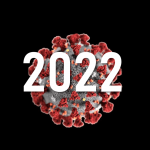I was heartened this week to see so many passionate and caring people gathered together to solve one of healthcare’s most pressing challenges: physician burnout.
At the Healthcare Burnout Symposium #HBS22 held in San Francisco on Jan. 24 and 25, I had the opportunity to present the keynote address. In front of an engaged and enthusiastic crowd, I offered my appreciation and admiration for the expertise of everyone in the room. So many hardworking and committed individuals have done remarkable work, not only highlighting the hard realities of burnout and the pain it causes, but also finding ways to address these challenges in innovative ways.
And yet, all of us have been forced to acknowledge how little has changed over the past decade. Doctors, nurses and advanced practitioners face ongoing and daily challenges with no clear end in sight.
I questioned the likelihood that any major improvement will happen unless our profession takes the lead: evolving both the system of healthcare and the culture of medicine.
I openly acknowledge that asking clinicians to lead the way may seem fair or even wrong given the stresses and strains they’re under. But this is the reality we face. If we don’t fix it, no one will. To get there, I offer four recommendations. The first two are cultural and the others are systemic.
- The hierarchy of specialties and the esteem given to each is part of the physician culture and harms those at the bottom. And yet, it is still common to hear deprecating comments about abilities of some doctors based on the specialty in which they practice.
- Doctors are taught to hide their emotions, hide their vulnerabilities and never ask for help. This norm contributes to more than 400 physician suicides each year and is particularly dangerous in the Covid-19 era.
- Beyond changing the culture of medicine, we must also change how physicians are paid, moving from a transactional methodology of reimbursement (which pays by the piece) to a transformational one that rewards doctors based on their relationships with their patients. In my current series on Breaking The Rules Of Healthcare, I offer a new way for CMS to pay and incentivize primary care as a first step.
- We must embrace telemedicine and artificial intelligence. These tools of the 21st century will help—not harm—the prestige and power of the medical profession. Modern technology has the ability to augment what the doctor does and improve the health of patients.
I concluded by pointing out that we cannot wait for insurers, hospital administrators or the government to invest in reducing physician burnout. The sooner we begin to make changes, the quicker we can reduce the pain inflicted on care providers and care recipients.
The event was a powerful dive into the challenges of burnout and the emerging solutions, which include care teams, compassionate leadership and modern technology. Chaired by Dr. Paul DeChant and Janae Sharp, HBS22 included a superb faculty, including the burnout pioneer Christina Maslach. Special thanks to Bill Doherty from ICD Events who organized the program and made it flow smoothly despite the challenges Omicron posed.
* * *
Dr. Robert Pearl is the former CEO of The Permanente Medical Group, the nation’s largest physician group. He’s a Forbes contributor, bestselling author, Stanford University professor, and host of two healthcare podcasts. Pearl’s newest book, “Uncaring: How the Culture of Medicine Kills Doctors & Patients,” is available now. All profits from the book go to Doctors Without Borders.






